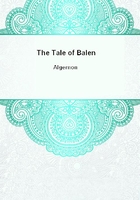
第44章 CHAPTER I(6)
At night, alone in our cabin, we sit no more brooding over the fire. What should we think of now? All is emptiness. So we take the old arithmetic; and the multiplication table, which with so much pains we learnt long ago and forgot directly, we learn now in a few hours, and never forget again.
We take a strange satisfaction in working arithmetical problems. We pause in our building to cover the stones with figures and calculations. We save money for a Latin Grammar and Algebra, and carry them about in our pockets, poring over them as over our Bible of old. We have thought we were utterly stupid, incapable of remembering anything, of learning anything. Now we find that all is easy. Has a new soul crept into this old body, that even our intellectual faculties are changed? We marvel; not perceiving that what a man expends in prayer and ecstasy he cannot have over for acquiring knowledge. You never shed a tear, or create a beautiful image, or quiver with emotion, but you pay for it at the practical, calculating end of your nature. You have just so much force: when the one channel runs over the other runs dry.
And now we turn to Nature. All these years we have lived beside her, and we have never seen her; and now we open our eyes and look at her.
The rocks have been to us a blur of brown: we bend over them, and the disorganised masses dissolve into a many-coloured, many-shaped, carefully- arranged form of existence. Here masses of rainbow-tinted crystals, half- fused together; there bands of smooth grey and red methodically overlying each other. This rock here is covered with a delicate silver tracery, in some mineral, resembling leaves and branches; there on the flat stone, on which we so often have sat to weep and pray, we look down, and see it covered with the fossil footprints of great birds, and the beautiful skeleton of a fish. We have often tried to picture in our mind what the fossiled remains of creatures must be like, and all the while we sat on them, we have been so blinded by thinking and feeling that we have never seen the world.
The flat plain has been to us a reach of monotonous red. We look at it, and every handful of sand starts into life. That wonderful people, the ants, we learn to know; see them make war and peace, play and work, and build their huge palaces. And that smaller people we make acquaintance with, who live in the flowers. The bitto flower has been for us a mere blur of yellow; we find its heart composed of a hundred perfect flowers, the homes of the tiny black people with red stripes, who move in and out in that little yellow city. Every bluebell has its inhabitant. Every day the karoo shows us a new wonder sleeping in its teeming bosom.
On our way back to work we pause and stand to see the ground-spider make its trap, bury itself in the sand, and then wait for the falling in of its enemy.